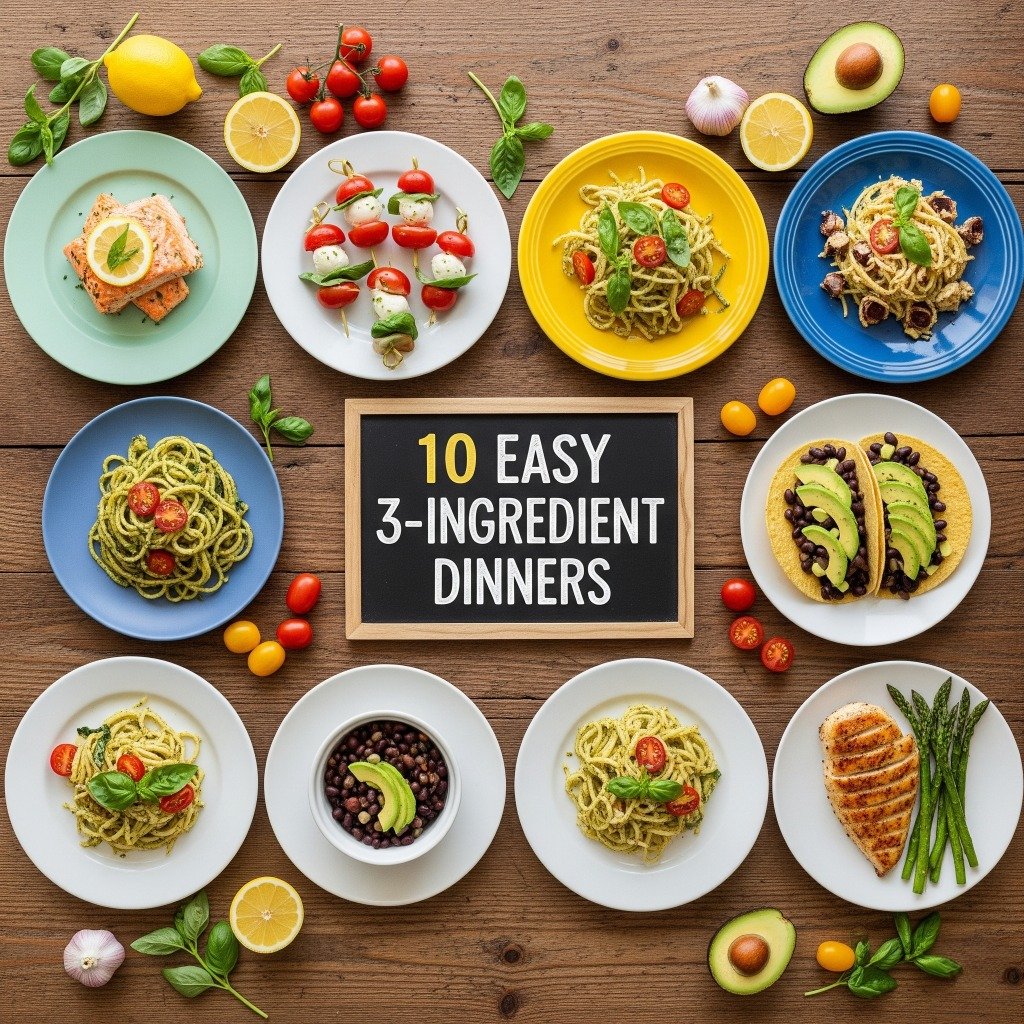Ever wonder what makes a restaurant dish taste so incredible? The secret often lies in simple, yet profound techniques that culinary masters use every day. Luckily, you don’t need a Michelin star to elevate your own meals. This guide compiles essential cooking tips from world-renowned chefs to help you transform your home cooking from good to great. By embracing the wisdom of icons like Gordon Ramsay, Julia Child, and Thomas Keller, you can build a strong foundation and add a professional touch to every plate. These insights go beyond simple recipes, focusing instead on the core principles that define exceptional food.
Foundational Cooking Tips from World-Renowned Chefs: The Kitchen Setup
Before you even think about turning on the stove, the world’s best chefs agree that success starts with preparation. A well-organized space and the right tools are not just conveniences; they are fundamental to the entire cooking process. They ensure efficiency, safety, and a calmer, more focused approach to creating your dish.
Embrace ‘Mise en Place’ Like Julia Child
The French term “mise en place” translates to “everything in its place.” This is perhaps the most crucial habit to adopt. Julia Child was a passionate advocate for this method. It involves preparing all your ingredients before you start cooking. This means chopping all your vegetables, measuring your spices, and laying out your tools. Consequently, you can focus solely on the cooking without frantically searching for an ingredient. This simple practice prevents mistakes and makes the entire experience more enjoyable. Adopting the discipline of mise en place is a game-changer for any home cook.
Gordon Ramsay on a Clean Workspace
Similarly, Gordon Ramsay constantly stresses the importance of a clean and organized workspace. He calls it a non-negotiable for both speed and safety in the kitchen. One of his most practical tips is to keep a waste bowl on your counter. This simple addition saves you numerous trips to the trash can. Additionally, he advises cleaning as you go. Wiping down surfaces and washing used tools during pauses in cooking prevents a massive cleanup job later. This maintains an efficient and hygienic environment, allowing you to work smoothly.
Why a Sharp Knife is Your Best Friend
Across the board, chefs agree that a sharp knife is the most important tool in the kitchen. Gordon Ramsay is particularly vocal about this, stating that a sharp knife is far safer than a dull one. A dull blade requires more pressure to cut, which increases the risk of it slipping and causing injury. In contrast, a sharp knife glides through food with ease. He recommends honing your knives regularly to maintain their edge and having them professionally sharpened periodically. Julia Child even had a special way to store her knives on a magnetic strip, keeping them safe and sharp.
Mastering Seasoning: Key Cooking Tips from World-Renowned Chefs
Proper seasoning is an art form that separates amateur from professional cooking. It’s a nuanced process that involves much more than a last-minute sprinkle of salt and pepper. These cooking tips from world-renowned chefs on seasoning will build layers of flavor from the very beginning of your cooking process.
Thomas Keller’s Approach to Salting
Thomas Keller, the chef behind The French Laundry, considers salt a primary flavor agent. He famously advises seasoning food from a height. By sprinkling salt from about a foot above, you allow the crystals to disperse evenly over the surface. Salting too close can create concentrated pockets of saltiness. Furthermore, Keller emphasizes seasoning throughout the cooking process, not just at the end. For example, salting vegetables at the start of sautéing helps draw out moisture and builds a deep flavor foundation.
Gordon Ramsay on When to Salt Proteins
Gordon Ramsay adds another layer to the salting discussion. He explains that salt not only adds flavor but also affects texture and moisture. For proteins like steak or chicken, he recommends seasoning generously right before they go into the pan. This helps create a beautiful brown crust, a hallmark of a perfectly cooked piece of meat. However, he warns against salting some foods too early, as it can have negative effects.
The Balancing Power of Acid
Another of Thomas Keller’s secrets is the masterful use of acid. He believes acid, like a splash of vinegar or a squeeze of citrus juice, can brighten and enhance flavors without being overpowering. A little bit of acid can cut through richness in a creamy sauce or lift the taste of a hearty soup. It provides a crucial balance that makes the entire dish more vibrant and delicious.
Ingredient Integrity: A Core Tenet from Culinary Masters
You can have the best technique in the world, but your dish will only be as good as its components. World-class chefs are obsessed with the quality of their ingredients, from produce to proteins. They believe that great cooking starts with sourcing the best and treating it with respect. These cooking tips from world-renowned chefs focus on honoring the ingredient.
The Importance of Fresh, Seasonal Ingredients
Julia Child was a pioneer in teaching Americans to value fresh, high-quality ingredients. She knew that good food begins with good shopping. Massimo Bottura of Osteria Francescana takes this philosophy even further, often using ingredients from his own garden. He champions seasonal cooking, which ensures produce is at its peak flavor and nutritional value. Understanding what is in season is crucial, especially as you navigate global economic trends that can affect food availability.
Respecting Your Proteins Before Cooking
Both Gordon Ramsay and the late Anthony Bourdain shared a critical tip for cooking meat: let it come to room temperature before cooking. Taking a steak out of the fridge about 20-30 minutes before it hits the pan allows it to cook much more evenly. A cold steak’s muscle fibers will seize up in a hot pan, resulting in a tougher final product. Ramsay also advises patting proteins dry with a paper towel. A dry surface is essential for achieving a perfect, golden-brown sear.
The Crucial Step of Resting Meat
After the cooking is done, the work isn’t over. Anthony Bourdain was a firm believer in letting meat rest for a few minutes after it comes off the heat. This allows the juices, which have been pushed to the center during cooking, to redistribute throughout the meat. Skipping this step and slicing into it immediately will cause those flavorful juices to spill out onto your cutting board, leaving you with a dry, less tasty result.
Pro Techniques: More Cooking Tips from World-Renowned Chefs
Mastering a few fundamental cooking techniques can dramatically improve your results. From heat management to using fat, these professional methods are often surprisingly simple to implement at home. Incorporating these cooking tips from world-renowned chefs will make your food taste like it came from a restaurant.
How to Control Heat and Avoid Overcrowding
A very common mistake home cooks make is overcrowding the pan. Julia Child’s method for perfectly sautéed mushrooms involved cooking them in small batches. This prevents the mushrooms from steaming in their own released moisture, allowing them to brown and crisp up properly. Similarly, Anthony Bourdain championed heavy-bottomed pans because they distribute heat more evenly, which is ideal for everything from searing to simmering soups and stews.
The Unapologetic Use of Butter
Both Julia Child and Anthony Bourdain celebrated butter. Bourdain once revealed that in many professional kitchens, butter is often the first and last thing to touch the pan. It adds unparalleled richness and flavor. When sautéing, Julia Child recommended adding a bit of oil to the butter. Since oil has a higher smoke point, it helps prevent the butter’s milk solids from burning while still giving you that delicious buttery taste. This technique shows the enduring significance of cultural traditions in classic French cooking.
Massimo Bottura’s Zero-Waste Philosophy
Massimo Bottura is not only known for his creativity but also for his resourceful, no-waste approach. He believes that every part of an ingredient has potential. For instance, he uses items like onion skins and vegetable peels to create incredibly flavorful broths. His inventive thinking also applies to classic recipes. Bottura’s famous pesto substitutes breadcrumbs for pine nuts, creating a lighter, creamier sauce while also being more accessible. He also adds ice cubes while blending to keep the basil’s color brilliantly green.
Specific Food Advice From The Pros
Sometimes you need targeted advice for common foods. Many chefs have shared specific tricks for preparing everyday items like eggs and vegetables to perfection. These specialized cooking tips from world-renowned chefs can make a huge difference.
Perfecting Eggs: Insights from Child, Bourdain, and Ramsay
Eggs are a staple, but they can be tricky. For perfect poached eggs, Julia Child had a unique trick: prick the shell with a pin and boil the egg for 10 seconds before cracking it into the poaching water. This helps set the white. For scrambled eggs, Anthony Bourdain insisted on no milk or cream, just fresh eggs whisked right before hitting a hot, buttery pan. Conversely, Gordon Ramsay warns against salting eggs before cooking, as salt can break them down and result in a watery texture and dull color. He seasons them right at the end.
Simple Ways to Elevate Vegetables
To make vegetables irresistible, Anthony Bourdain wasn’t afraid to use butter and a touch of sugar, a classic French technique that enhances their natural sweetness. Gordon Ramsay has a method for steaming vegetables to concentrate their flavor. He places them in a pan with a knob of butter and seasoning, then covers them with a lid over low heat. This allows the vegetables to cook in their own juices, creating an intensely flavorful result.
Gordon Ramsay’s Secrets to Flavorful Rice
For more flavorful rice, Gordon Ramsay advises seasoning the water while the rice cooks. This allows the grains to absorb the flavor much more evenly than if you just season at the end. He also suggests infusing the rice with aromatics by adding whole spices like star anise, cardamom pods, or a bay leaf to the cooking liquid. This simple step adds a wonderful, fragrant background note.
Applying These Cooking Tips from World-Renowned Chefs in Your Kitchen
Incorporating these principles into your daily routine is the key to unlocking your culinary potential. The recurring themes are clear: start with meticulous preparation, respect your high-quality ingredients, season thoughtfully at every stage, and master fundamental techniques. By adopting even a few of these cooking tips from world-renowned chefs, you will not only improve your dishes but also deepen your appreciation for the art of cooking. The journey to becoming a better home cook starts not with a complicated recipe, but with these foundational secrets from the masters.

